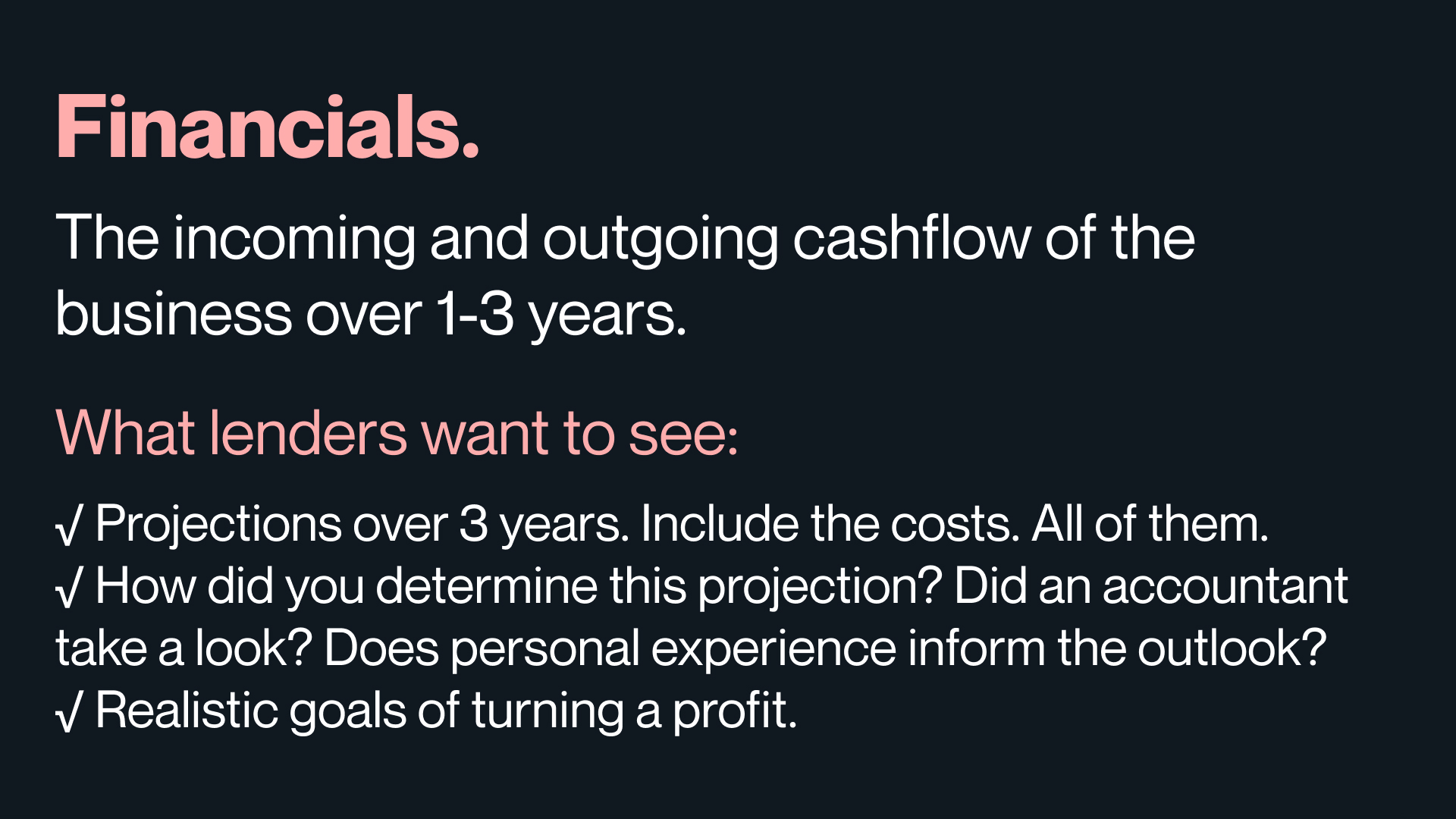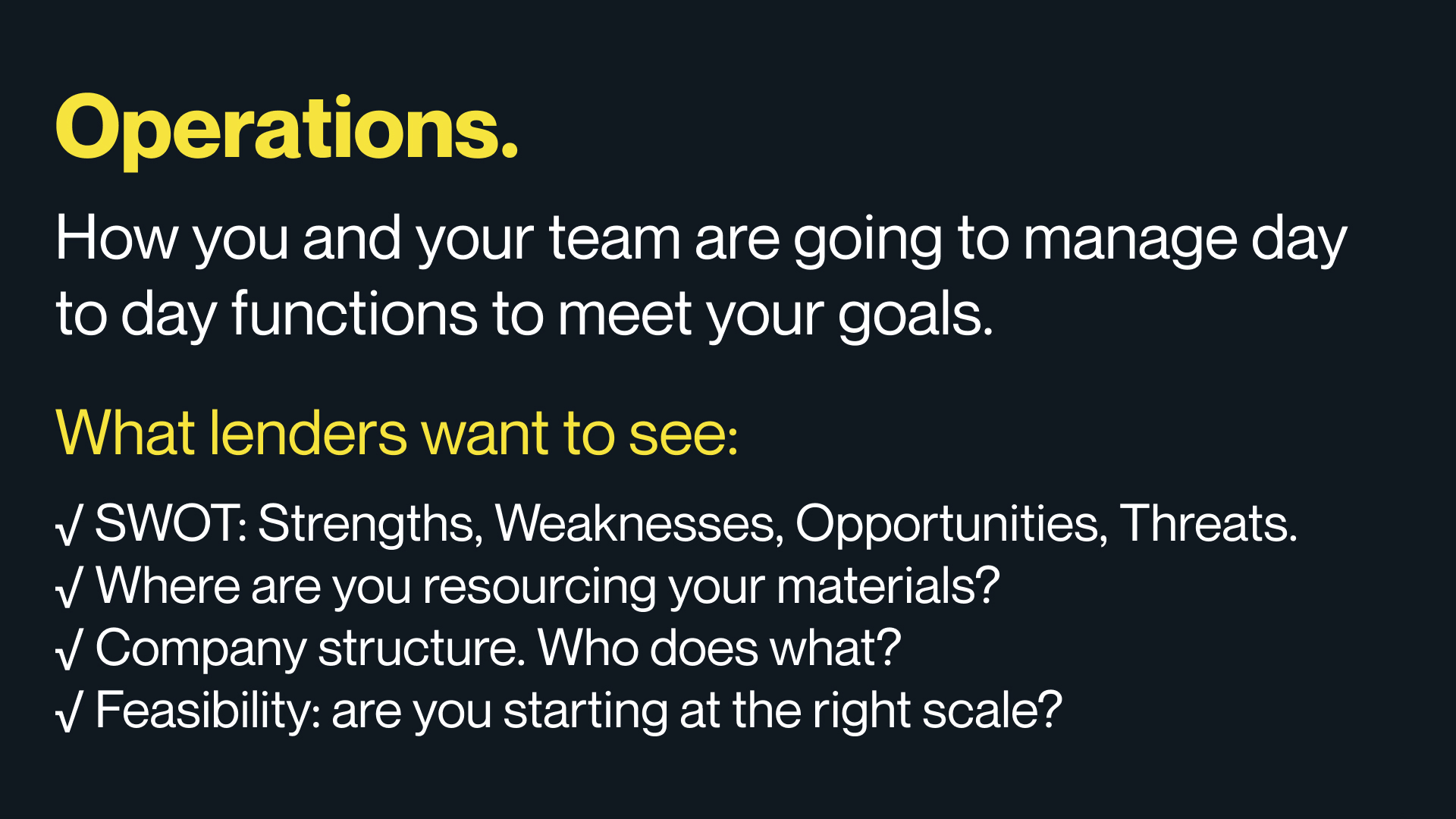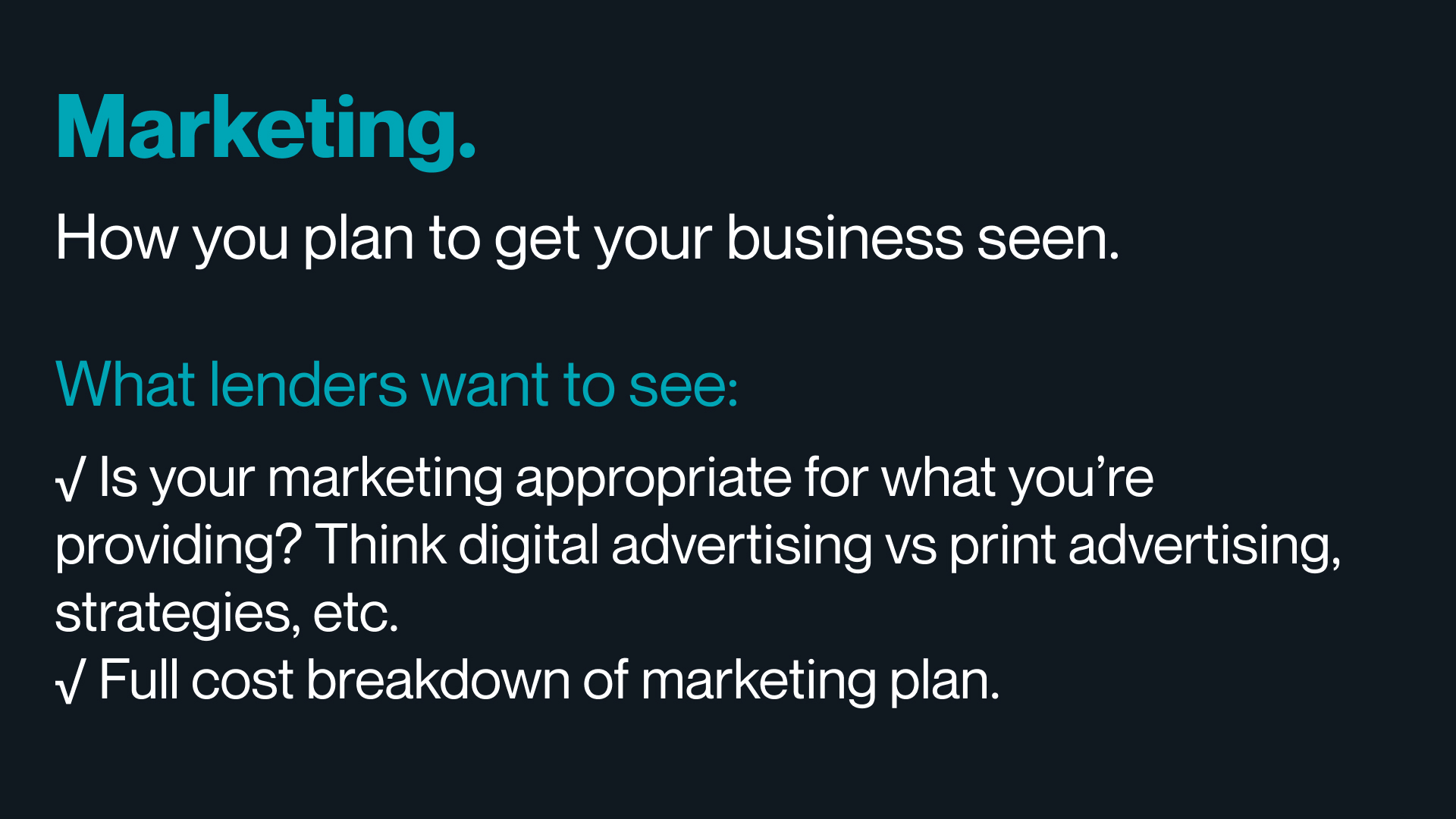
Business plans are necessary to inform your shareholders, partners, accountants, and lenders how feasible your business idea is aka how likely it is to turn a profit. We sat down with one of our independent business advisors to get the scoop on what lenders are specifically looking for in business plans to approve a loan.
What are lenders looking for?

Lenders want to know that you have your ducks in a row, including realistic projections over (preferably) 3 years, all costs accounted for, and worst-case scenarios considered. They’re using your business plan to assess the risk of lending to you, so it’s crucial they see that you’ve assessed your risks as well.
Credibility, passion, and a thorough plan are also on the checklist. Lenders want to know that you and your team has what it takes to bring the business to life.
Not to mention, this is your first impression, and it matters. “Definitely no spelling mistakes,” Victoria advises. “Make it look professional, like you’ve put time and effort into it.” As simple as this statement seems, it’s worth noting because a lender (or anyone) may not be impressed by a plan business plan written in Times New Roman with no pictures and no spelling or grammar checks. This should be a few steps above your high school, double-spaced essay.
Our advice? Use a free design tool like Canva to plug your plan into something bright, clean, and organized. Then, use a tool like Grammarly (or your mom’s eagle eyes) to review the technical stuff like spelling and grammar.
The specifics.
Company profile.
Your background and experience should highlight your ability to see this idea through. If this is your first time starting a business, don’t worry – lenders will rely on your education, your hobbies, interests and passions to connect the dots between your personal investment and the possibilities of your business.
If you have teammates and partners, make sure to include them in this as well. Bringing in your friend who works as a mechanic to do your bookkeeping doesn’t really make sense unless he’s a numbers guy, does math in his free time, and helped the auto shop balance their books.
While it isn’t a part of your business plans, be prepared for lenders to ask you and your partners for a breakdown of your personal net worth. This helps them assess your safety net.
Financials.
Lenders prefer seeing projections of at least 3 years, but don’t want you to skimp over that first year plan. There will likely be more costs in the first year due to start up costs.
These projections should also be “fact checked.” They should be based on previous experience, input from an accountant, or a review from an experienced peer. Lenders want to see how you came up with your projections. What are your numbers based on? Remember when your math teacher would tell you to show your work? It’s kind of like that.

Operations.
Knowing what your business faces in terms of strengths, weaknesses, opportunities, and potential threats shows a lender that you’ve thought through all of your scenarios. For example, a business opening a restaurant during the COVID-19 would need to have thought through the potential threat of not being able to have dine-in service. If their focus was on food to-go, then that could be a check in the strength’s column.
Lenders also want to know how you will be consistently sourcing materials and products. If you sell jewelry, where are you getting your supplies? Will there be any interference with getting these supplies? In other words, are you able to reliably source what you need to keep your business running?
Marketing.
Everyone has to get their business out there one way or another. Social media is an obvious method, but how are you going to utilize the different channels? What is your competition doing? Is it social media or is it billboard ads? Be sure to do your homework so lenders can see the evidence that you’ve thought your plan through and know how you’re going to tackle getting your business noticed.
What’s a “bad” business plan?
“Too short [and] too optimistic,” Victoria says.
If a business is projecting to be millionaires in a year, that’s great, but is it realistic? Shooting for the stars is a great thing to pin to a vision board, but not a business plan. Aiming too high may make a lender think you haven’t thought of potential pitfalls or obstacles, and they want to know that you’ve not only thought of them, but how your business with weather them if they happen.
Creating a business plan that fits into a compact two pages may not be very striking either. Again, the teacher wants to see your work. Flesh out your details and don’t be afraid to tell a story.
What if my loan is rejected?
A loan may be rejected if the amount doesn’t fit the business, or if there are holes in a business plan that make a lender weary. There might not be enough security to assume the risk of lending money. Sometimes the business makes sense, but the amount doesn’t. According to Victoria, a good lender should be able to offer an amount that does suit the credit union’s risk tolerance and meet you half way with your business goals.
Final thoughts.
Our team of experienced and passionate independent business advisors are waiting to see your business plan. We are in the business of building a brighter future for Albertans, and we know you are too. So let’s do it together.
We’re making things easier for independent businesses in Alberta.
Established Business?
Experience truly Unlimited Business banking at the most competitive price in Alberta.
Learn more >
 Search
Search






 Learn
Learn







